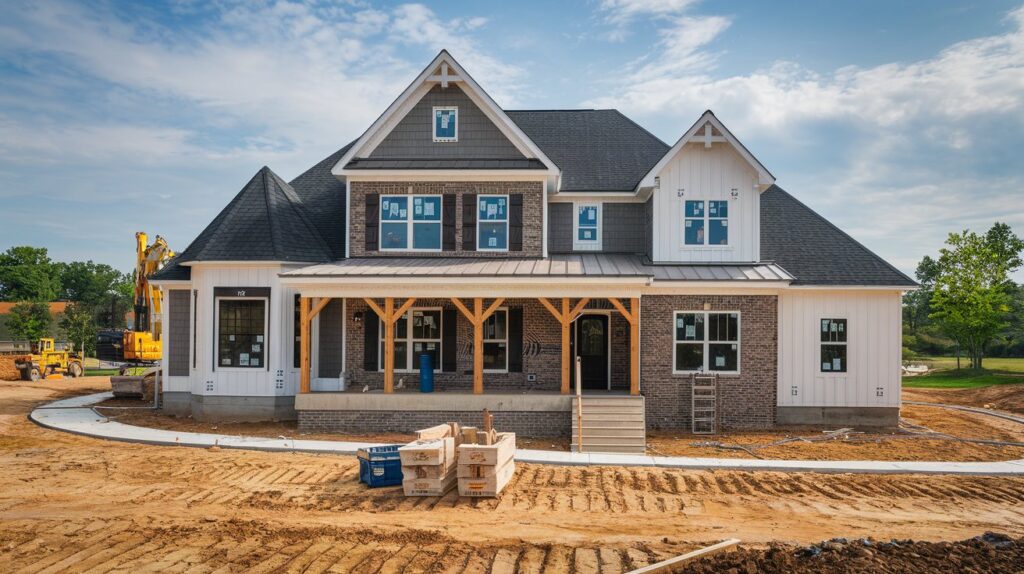Building a quality home begins long before the first brick is laid or timber frame erected. Proper site preparation forms the critical foundation that determines whether your construction project will succeed or face costly complications down the track.
From drainage considerations to soil stability assessments, every aspect of site preparation impacts the longevity, safety, and structural integrity of your future home.
Understanding Your Building Site
Every residential construction project starts with a thorough understanding of the building site’s unique characteristics and constraints. Professional assessment reveals crucial factors including soil composition, drainage patterns, existing vegetation, and slope gradients that directly influence construction methods and costs.
Heritage considerations, particularly relevant in Sydney’s inner suburbs, may impose additional requirements that affect site preparation strategies. Experienced professionals conduct comprehensive site analysis to identify potential challenges before they become expensive problems, ensuring your project proceeds smoothly from the outset.
The Role of Professional Planning
When embarking on residential construction, consulting with qualified inner west architects ensures your site preparation aligns with both council regulations and your project vision. These professionals bring invaluable expertise in navigating local planning requirements, heritage constraints, and environmental considerations that might otherwise derail your construction timeline.
Their integrated approach to design and construction planning means potential issues are identified and resolved during the preparation phase, rather than during expensive construction stages. This collaborative process between architects, builders, and clients creates a solid foundation for successful project outcomes.
Essential Site Preparation Steps
Effective site preparation encompasses several critical stages that must be completed systematically. Initial site clearing removes vegetation and debris whilst preserving significant trees and heritage elements where required. Soil testing determines load-bearing capacity and identifies any contamination issues that require remediation.
Excavation work establishes proper foundation levels and creates space for utilities infrastructure. Proper drainage systems prevent water damage and structural issues throughout the building’s lifespan. Each step requires careful coordination with local authorities to ensure compliance with building codes and environmental regulations.
Drainage and Water Management
Water management represents one of the most crucial aspects of site preparation, particularly in areas prone to heavy rainfall or with challenging topography. Proper drainage systems redirect stormwater away from foundation areas, preventing costly water damage and structural instability. Site grading ensures water flows naturally toward designated drainage points rather than pooling around building foundations.
Underground drainage pipes, French drains, and surface water channels work together to create comprehensive water management solutions. Inadequate drainage preparation often results in ongoing maintenance issues, foundation movement, and internal water damage that far exceed initial preparation costs.
Soil Stability and Foundation Requirements
Understanding soil conditions through professional geotechnical assessment ensures appropriate foundation systems are designed for your specific site. Different soil types require varying foundation approaches, from standard concrete slabs to deep pier systems in unstable ground. Clay soils may require special consideration for seasonal movement, whilst sandy soils might need additional stabilisation measures.
Rock formations can complicate excavation but provide excellent foundation support once properly prepared. Early identification of soil characteristics allows architects and builders to design appropriate structural solutions that prevent future settlement issues and structural damage.
Utility Infrastructure Planning
Modern residential construction requires careful coordination of multiple utility services during site preparation phases. Electricity, water, sewerage, gas, and telecommunications connections must be planned and installed before construction commences. Temporary services support construction activities whilst permanent connections serve the completed dwelling.
Underground utility placement requires precise coordination to avoid conflicts with foundation systems and landscaping elements. Professional site preparation includes comprehensive utility planning that ensures all services are properly positioned and protected throughout the construction process, avoiding costly modifications or repairs later.
Environmental Considerations and Compliance
Contemporary site preparation must address environmental protection requirements and sustainability considerations that weren’t previously mandated. Soil erosion control measures protect surrounding properties and waterways during construction activities. Native vegetation preservation requirements may limit clearing activities and influence building placement decisions.
Contaminated soil remediation ensures safe living conditions and prevents ongoing environmental liability. Noise and dust management demonstrates consideration for neighbouring properties and maintains positive community relationships. Professional site preparation includes comprehensive environmental management plans that ensure regulatory compliance whilst minimising project impacts.
Long-term Investment Protection
Quality site preparation represents a crucial investment in your property’s long-term value and structural integrity. Properly prepared sites support stable foundations, effective drainage, and reliable utility services that minimise ongoing maintenance requirements. Comprehensive site preparation prevents common issues including foundation settlement, water ingress, and utility failures that can devastate property values and habitability.
The initial investment in professional site preparation consistently delivers substantial returns through reduced maintenance costs, improved structural performance, and enhanced property values. Experienced professionals understand that thorough preparation today prevents expensive remediation tomorrow, making it an essential component of successful residential construction projects.

